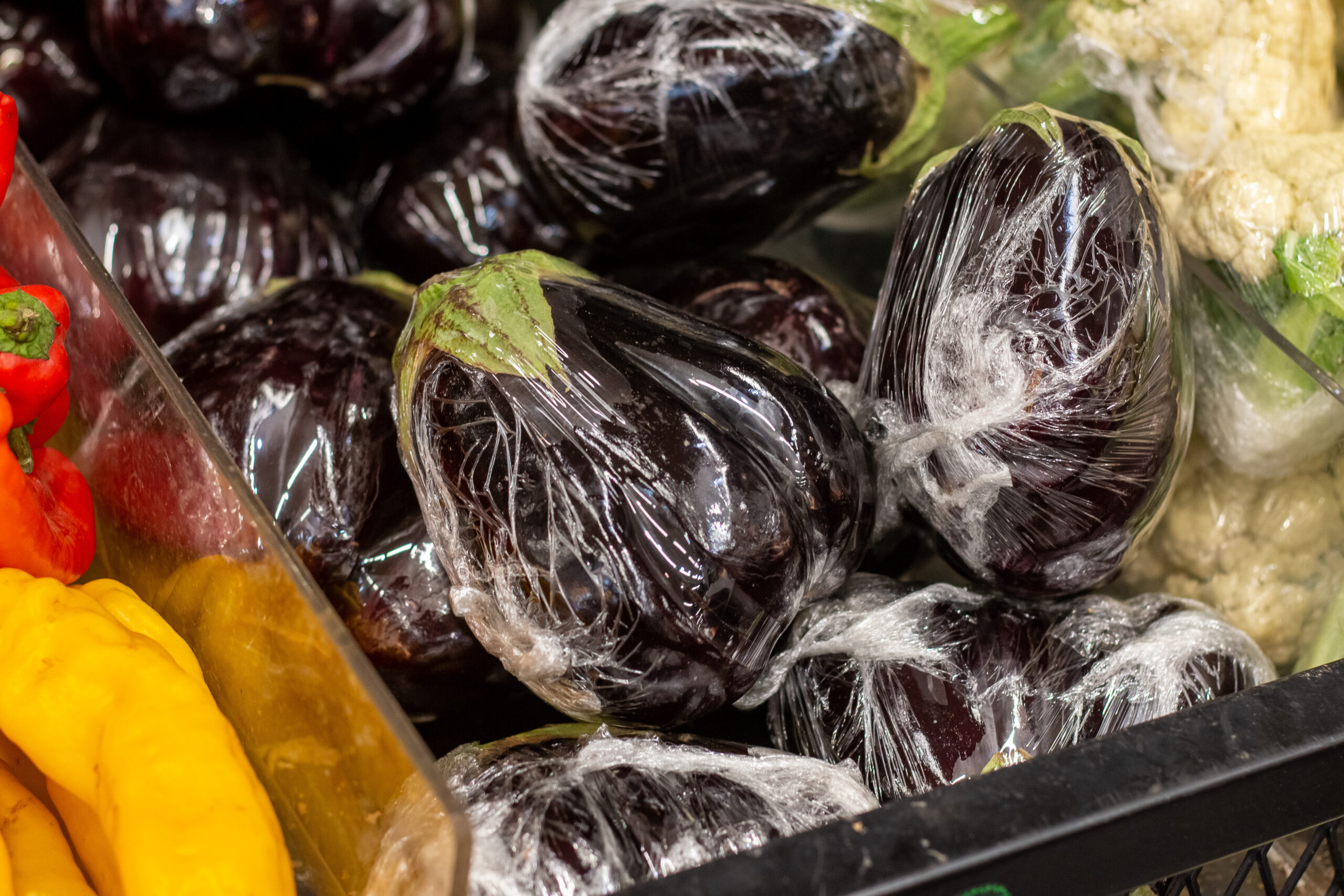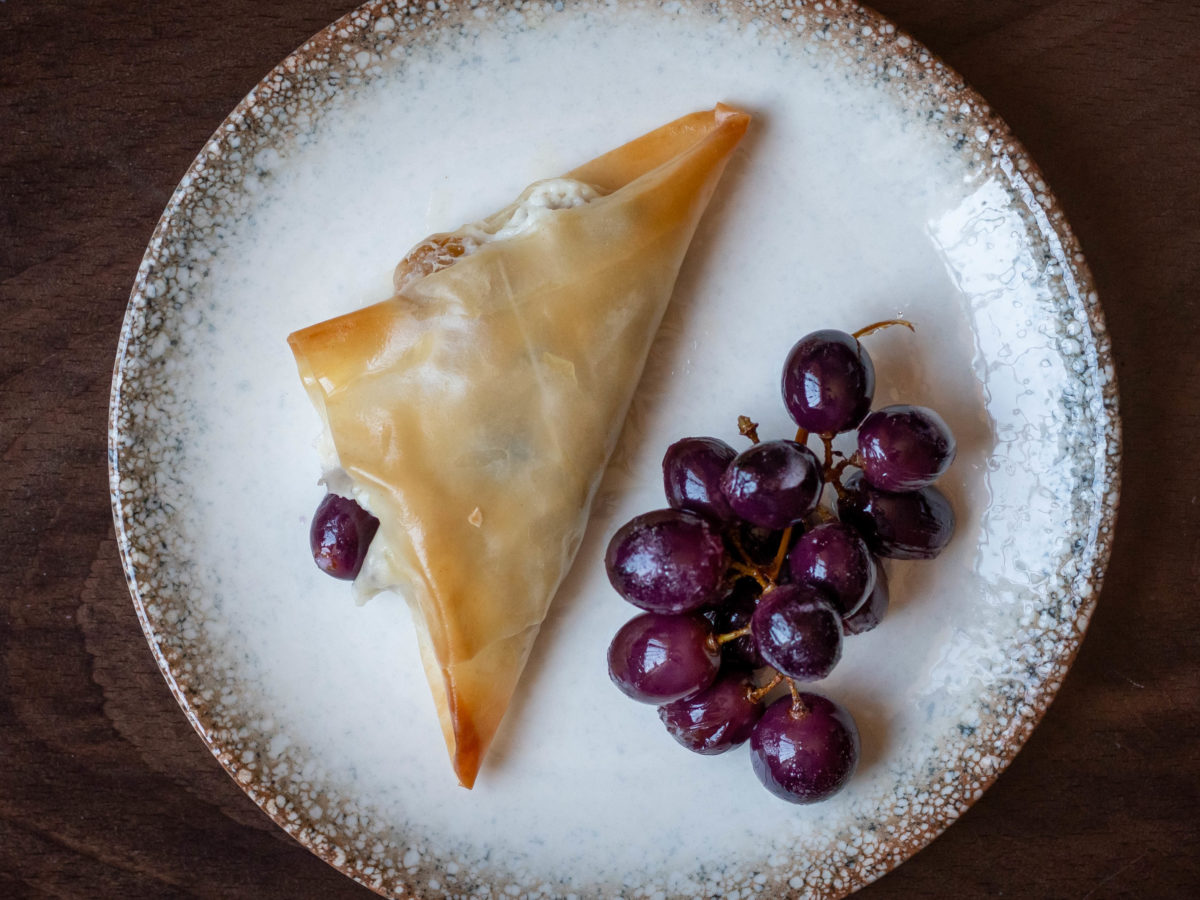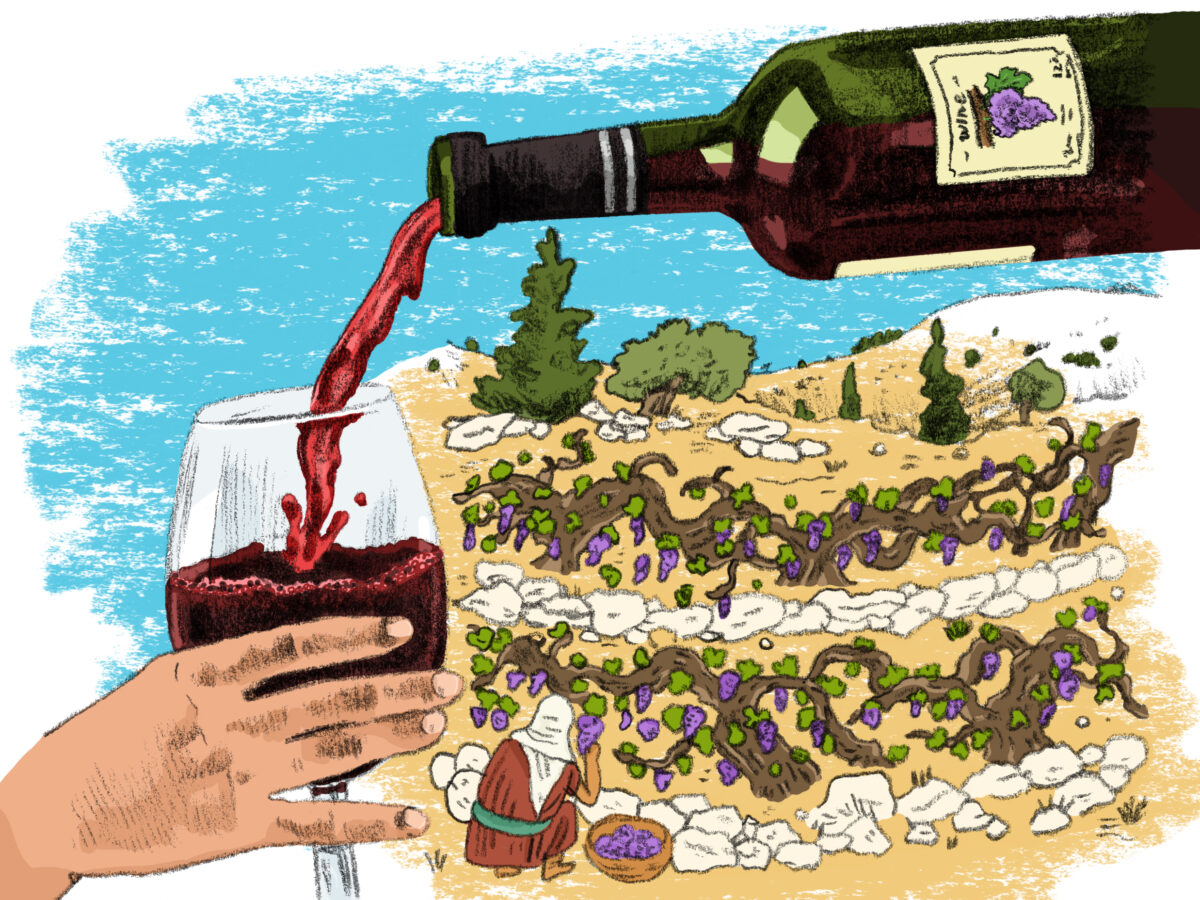Selecting the title for Michal Waxman and Dohol Sefadi’s cookbook “Baladi: Four Seasons in Nazareth” wasn’t an easy task. “There was some hesitation,” says Waxman. “We knew we wanted a title that could work in both Hebrew and Arabic. The original meaning of baladi is local, connected to the land or the place, which is just right for the food of a six-generation Nazarene family. On the other hand, there is always the fear of falling into cliches. And since the book came out, I see this term is used more and more as a sales and marketing tool. People don’t know what baladi is, but they know it’s good. If you go to the market, you will see that the first thing Arab merchants tell Jews is ‘baladi,’ even if it all grew in a greenhouse. They know this is what people are looking for.”
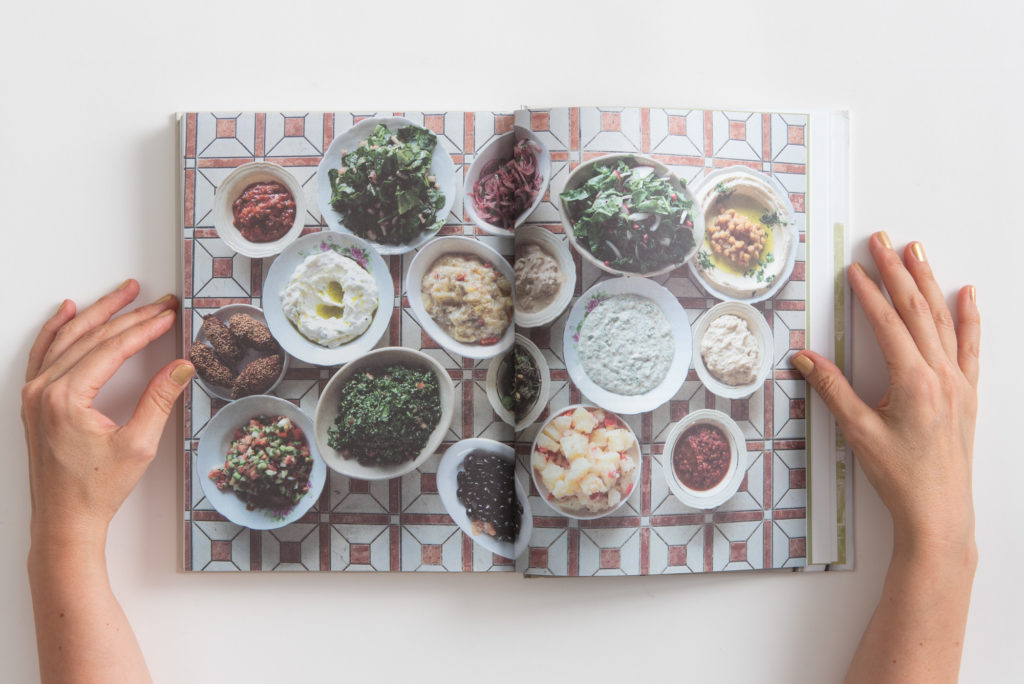
But just as demand for baladi produce is soaring, the vegetables themselves seem to be disappearing from the greengrocers’ shelves: “three, four or five years ago, the old greengrocers at the Tikva market still had Roma tomatoes, which had about a month-long season. These tomatoes were solid, red, easy to preserve – and [now] they’re gone,” Waxman testifies. “Supermarkets and greengrocers no longer want this produce, because it has a short shelf life and it’s not as pretty.”
But, the disappearance of baladi vegetables is not the whole story; in the journey from the Palestinian village of Battir to Tel Aviv, the term has lost some of its meanings – and gained others.
What Is Baladi? From the Hakoura to Ghost Kitchens
In Arabic, the adjective “baladi” is derived from the word “balad” (بلد), meaning a village, settlement or region. In the culinary-agricultural context, it refers to local produce, whatever grows in a certain “place.” Yet, translation does not reveal the entire spectrum of meanings encapsulated in this term. Let me share two anecdotes with you:
Anecdote no. 1 – October 2020, the heyday of Covid. Chef Erez Komarovsky launches “Baladi Chic,” a delivery menu with the Cube Kitchen company, who operates ghost kitchens from the Fattal Hotel chain. That same month, in an interview with Time Out Tel Aviv, Komarovsky states that his delivery pop-up “represents Israeli cooking” with dishes like “Zionist Ramen, a hybrid of grandma’s chicken-and-lokshen soup and Japanese Ramen.”
The second anecdote is a quote from Habib Daoud, a forager and chef, who co-owns Ezba restaurant in Rameh and Kabakeh in Jaffa: “Baladi isn’t even supposed to be part of the trade economy; it’s supposed to be given for free. It’s what grows in one’s hakoura (حاكورة), a small garden patch [or personal orchard] in which vegetables and herbs are grown for home use. It expresses a wish to grow what we consume, as much as possible; and what is not consumed is given away.”
So, how is a marketing term used to describe a Japanese-Jewish kitchen operating in Tel Aviv related to garden surplus given for free to relatives and neighbors?
Rise and Semantic Change
In ongoing research dedicated to the anthropology of baladi, anthropologists Dr. Rafi Grosglik (Ben-Gurion University), Dr. Ariel Hendel (Tel Aviv University) and professor Daniel Monterescu (Central European University, Vienna) use archival research and in-depth interviews to trace the term’s political biography, followings its journey from Palestinian society to the Jewish-Israeli society — and back. In both societies, baladi is “an untranslatable culinary-agricultural category,” they say. “Originally, baladi was a politically-neutral agricultural term, referring to certain varieties or to local agriculture. Today, it has strong political connotations.”
“Unlike ‘organic,’ for instance, it is very hard to pinpoint a specific time or specific agents who constructed the term ‘baladi.’ We can, however, say when usage started to soar, and we can also suggest several explanations. From the 1930s to the 1980s, it was mainly used in Palestinian society in agricultural contexts. It hardly appeared in the Palestinian or Israeli press — we found about 5-6 mentions,” they note.
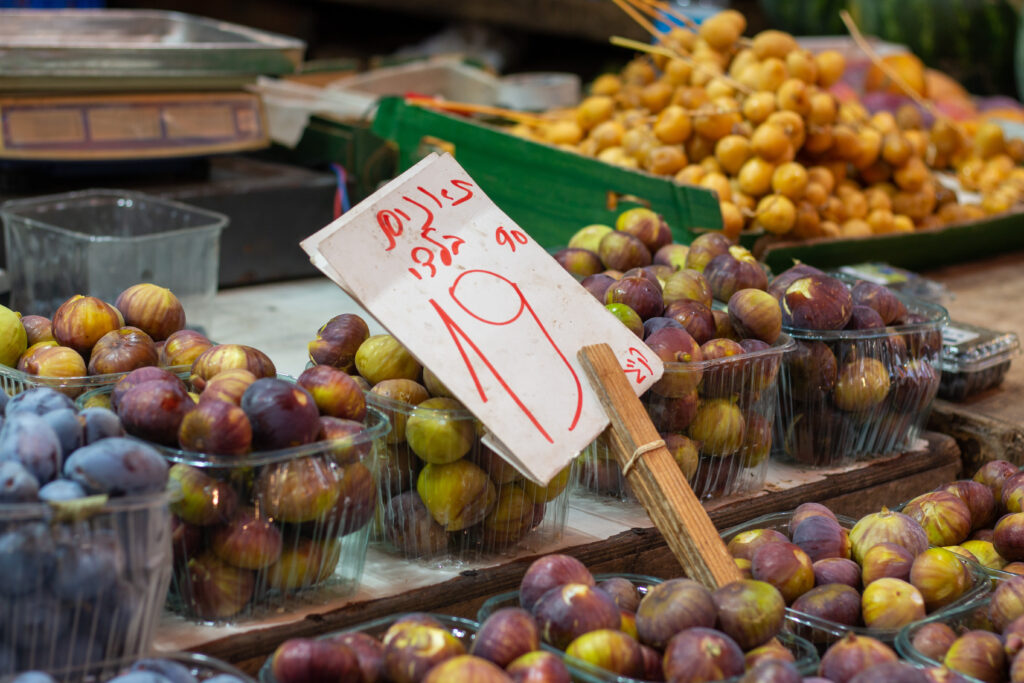
The turning point was the 1990s. “The Oslo Accords brought about an intensification of the discussion of identity in both societies, as well as a growing integration between the two economies, the Palestinian and the Israeli,” Grosglik, Handel and Monterescu explain. “At the same time, we see an intensification of globalization processes and as a backlash, a growing interest in locality, that we call ‘glocality.’ As a result, the use of the term baladi soared — in the 1990s, we found 1200-1600 mentions in the Hebrew-language press. Baladi becomes sexy, part of the organic shift in the Israeli kitchen, accompanied by a growing interest in foraging and in local food.” In Jewish-Israeli culinary culture, they add, “baladi [went] through accelerated processes of appropriation, commercialization and branding. Cooking shows also play an important role in its commercialization. In the lack of actual roots, contestants select ‘baladi’ ingredients to prove their connection to the land.”
In an article published in 2018 at Hashulchan magazine, food writer (and currently Asif’s public programs manager) Michal Levit suggests that the interest in baladi is motivated in part by a global urban passion to consume locally. Yet Jewish and Zionist traditions also use agriculture to express the relationship between man and land; local produce stands at the center of at least three Israeli holidays: Sukkot, Shavuot, and Tu Bishvat. These traditions celebrate the fig and olive, grape and date, yet ignore some of the characteristic foods of the Palestinian kitchen, which now enjoy the glamour of “baladi,” like mallow and watercress. The Jewish-Israeli glorification of baladi raises major questions about “cultural appropriation and gentrification of food, that is, price increases of formerly inexpensive food products consumed by disadvantaged groups as a result of a change of their cultural value,” writes Levit.
In the transition from a Palestinian agricultural category to an Israeli marketing term, the original meaning of baladi was reversed: “originally, baladi is the less prestigious food, it’s what poor people eat,” Grosglik says. “In the 1990s, it suddenly becomes attractive, a brand. We found a journalist who wondered back in the 1930s, ‘How come baladi wheat is more expensive than imported wheat?’”
In her article about mallow (hubeza), published in the 2021 book “Thoughts on Food,” Levit provides another explanation for the Jewish-Israeli culinary interest in baladi. Producers and consumers, she suggests, “wish to re-establish their connection to the land by consuming authentic Arabic food. The Arab use of the word baladi to describe local food grants writers and their readers a cultural trait that connects them to their environment and makes them feel more authentic.” At the same time, says Levit, in Hebrew-language media, baladi is often described as food that belongs to an inferior “other,” allowing the writers and readers to feel superior.
Baladi – A Problem of Definition
Just like “authentic” and its Arabic equivalent “asli,” baladi belongs to a network of apparent synonyms, positioning the “real” against the “fake,” and the “natural” against the “industrialized.” Yet the use of baladi centers on the agricultural, and mainly within a culinary context: it can be found on restaurant menus, reality cooking shows, and in markets. Just like “organic,” it expresses a connection to the soil, to nature and to artisanal manufacturing, but without a legal, formal or enforceable definition, it is more open to interpretation. It has become a buzzword — and it’s a short way from here to usages that drift from the term’s real meaning, and end up in the ghost kitchen of a chain hotel.
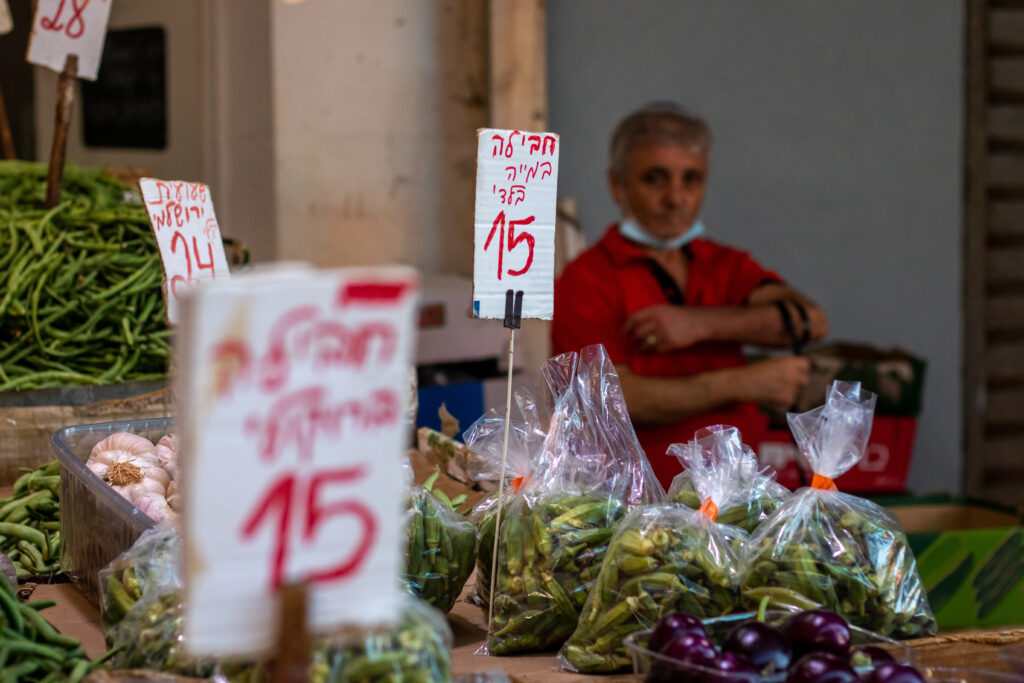
The liberal usage of the term baladi by restaurant owners, chefs, and consumers is doubly ambiguous: in its definition and the produce’s source. “In the restaurants of Tel Aviv, there is misinformation and confusion about what is and what isn’t baladi, because Tel Aviv’s residents cannot visit the West Bank,” explains Daoud. “I met chefs who were told they were buying baladi, wild-grown za’atar, yet I know it grew in plots in olive groves. There is nothing wrong with that, but it’s not baladi, because it’s irrigated. Baladi has limited seasonal availability because it is grown through dryland farming.”
Grosglik, Handel, and Monterescu add that the attempt to define baladi as an “original variety” is also not without difficulties: “the very idea of originality is relative, and it depends on what we decide to include in the local agricultural tradition,” says Grosglik. Even varieties commonly perceived as local have not necessarily always been here: “Generally speaking, the term baladi is used to describe an original variety, prior to the arrival of other, foreign varieties. Even more broadly, it expresses the idea of local produce before modernization. But that, too, is relative, of course. Today, baladi is a socially-constructed category, only employed for products related to the local Arab agricultural space. Mango is grown here, but there is no ‘baladi mango’. Baladi goats – yes, baladi apricot — yes. But if we go back, they, too, have not always been here.”
Food professionals also offer different definitions, some of which are based on their personal memories. To Daoud, as we saw, baladi is the product of the hakoura, or garden patch. For Jerusalem-born Sami Tamimi, co-author of “Jerusalem” and “Falastin,” baladi is “rural women coming from all over the country, who go from house to house and sell their products in the Old City and its neighborhoods. My mother would buy what they brought, and to me this was baladi.”
In Palestinian Society – Between Politics and the Given
In her 2014 Gastronomica article, ״Resistance Is Fertile!,” anthropologist Anne Meneley claims baladi has become a “tool for agro-resistance” (non-violent resistance through agricultural practices), used by “Palestinian guerilla gardeners” to reclaim their agricultural heritage and the occupied territories. By connecting locality and political protest, these “gardeners” resist literary and metaphoric uprooting, and the disappearance of the “local,” as a result of the separation wall breaking its continuity.
The term baladi, claims Meneley, means much more than “local”: It symbolizes the intimate relationship of Palestinians with their land, and with the agricultural produce that sustains them, as well as nostalgia for an endangered way of life. Tamimi agrees: “the wider significance of baladi is ‘my village,’ ‘my land,’ what I planted and cultivated, whether for myself or to sell to others — so it is also emotional. And it clearly has a political significance for Palestinians — some of whom have lost the lands they had once owned.”
Grosglik, Handel, and Monterescu are more careful: “Meneley may have gone slightly too far in her claim, but it does seem the usage of baladi for political purposes has become more frequent, as an expression of gastro-national or gastro-political resistance, for example in the area of the Palestinian villages Al-Walaja and Battir. In Battir, a UNESCO World Heritage Site which receives funding from the Palestinian Authority, the local eggplant has become a national player. Still, this usage is limited to a specific activist group, while marketing usages are limited to the high-middle class interested in consuming healthy, local Palestinian produce. In this context, baladi belongs to a niche economy, targeting foodie consumers who are also interested in similar trends, like slow food and fair trade.”
In these circles, baladi blends into what Grosglik, Handel, and Monterescu call “global commercial entrepreneurship, which markets baladi within a discourse of locality and originality.” Nasser Abufarha is the founder and director of Canaan Palestine, which exports organic fair-trade products to the United States, East Asia, and Europe, the same consumers Grosglik, Handel, and Monterescu describe. “To me, baladi is as close as we have to terroir, local varieties that change from one micro-climate to the next,” Abufarha says. “Battir’s eggplant is different from the eggplant of Nazareth…. I don’t see much political use of this term, I see an attempt to draw attention to local farming — to celebrate and cultivate the connection between variety, growing method, and farmer.”
The link Abufarha makes between baladi and terroir resonates with what sociologist Lucien Karpik has called the Economics of Singularities: a global economy based on a romanticization of the local connection to the land, targeting the global and urban high-middle class. Tamimi, too, believes the term baladi is primarily used in Palestinian society outside Palestine: “Out of a wish to preserve and educate — so that future generations know its meaning and talk about it.” He does not use baladi varieties in his recipes for English-speaking readers, explaining that they’ve become less and less available even for local consumers, and their short shelf life makes them impossible to export.
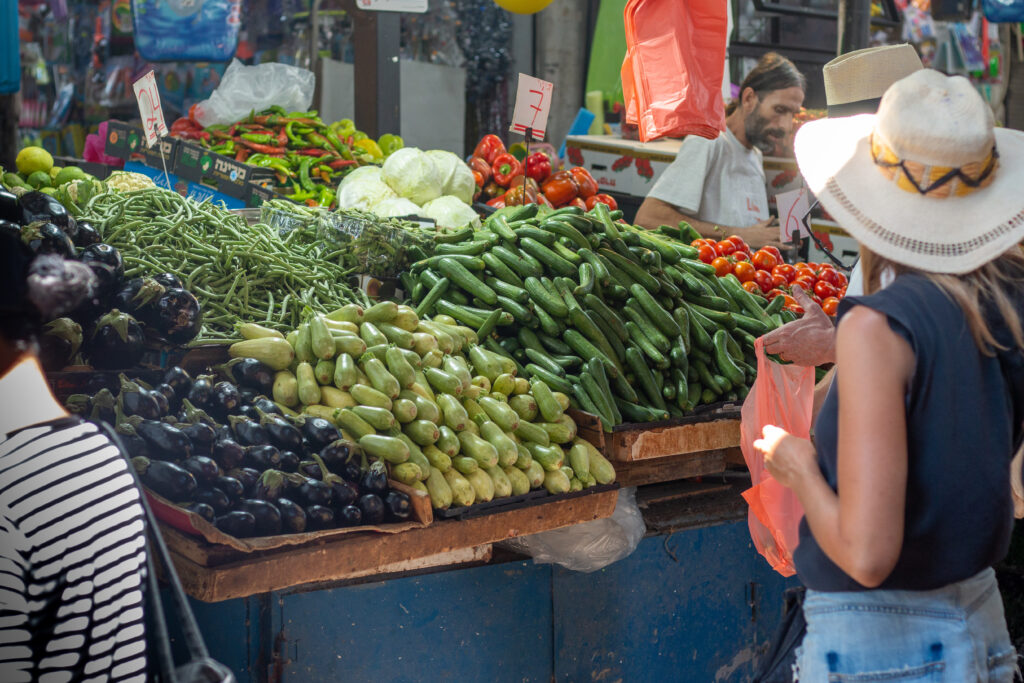
One of Grosglik, Handel, and Monterescu’s most interesting findings centers on the third metamorphosis of baladi, its rebranding in Palestinian society by Israeli commercial companies. “Baladi is not all economy and resistance; it is also part of the relationship with the Israeli market. In the 1990s, the Strauss company started selling labane to Palestinians in the West Bank and in Gaza. In the suggested recipes on its package, the company recommends using ‘baladi’ eggplants. The Israeli industry began selling baladi back to the Palestinians.”
Baladi surprisingly connects Palestinian hakouras, door-to-door vendors in Eastern Jerusalem, guerilla gardeners in the West Bank, foodies in London and Tokyo, ghost kitchens during Covid, an Israeli conglomerate marketing to Palestinian families, in a process in which personal, emotional and political meanings are lost and gained — until the next metamorphosis.
